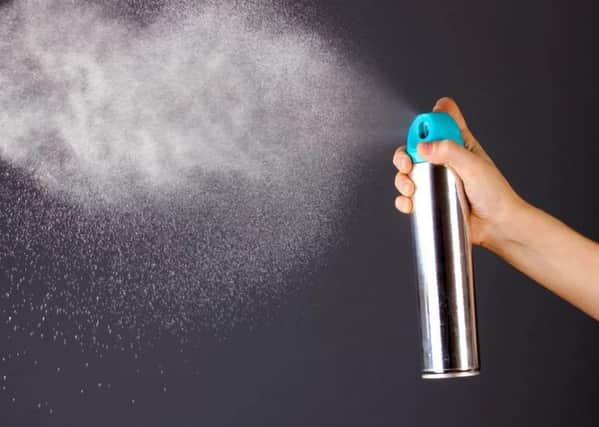Could using air fresheners and cleaning products in your home damage your health?


Experts have helped compile a report which says items used frequently around homes such as air fresheners, candles and cleaning products are heightening people’s risk of developing a number of health problems.
Being exposed to personal care products, mould or mildew, fires or wood-burning stoves and poorly maintained gas heaters and boilers could be leading to a number of health problems, according to the report by the Royal College of Physicians (RCP) and the Royal College of Paediatrics and Child Health (RCPCH).
Advertisement
Hide AdAdvertisement
Hide AdWhile it is commonly understood that smoking causes indoor air pollution, the experts also outlined a number of other items linked to potential health impacts including asthma, chronic obstructive pulmonary disease, respiratory problems and effects on the heart and cancer.
Indoor air pollution may have caused or contributed to 99,000 deaths in just one year across Europe, states the report, which includes research carried out at Southampton University.
“Being indoors can offer some protection against outdoor air pollution, but it can also expose us to other air pollution sources,” the authors wrote.
“There is now good awareness of the risks from badly maintained gas appliances, radioactive radon gas and second-hand tobacco smoke, but indoors we can also be exposed to NO2 from gas cooking and solvents that slowly seep from plastics, paints and furnishings.
Advertisement
Hide AdAdvertisement
Hide Ad“The lemon and pine scents that we use to make our homes smell fresh can react chemically to generate air pollutants, and ozone-based air fresheners can also cause indoor air pollution.”
Other items that are exposing people to potentially harmful pollutants include joss sticks, cookers, boilers, open fires and portable gas or paraffin heaters.
Meanwhile the building itself and the materials it is made from are also potential sources of chemical pollutants. The authors added: “These include the construction materials, as well as paints, glues, furniture, wallpaper and drapery. Cleaning and DIY products, air fresheners and other consumer products such as insecticide sprays that we use in the home are also important.”
While being indoors can protect people from harmful outdoor pollution, it could also be contributing more to people being exposed to pollution from inside their own homes. The authors said that the drive to reduce energy costs by creating homes with tighter ventilation could be making the situation “worse”.
Advertisement
Hide AdAdvertisement
Hide AdThe report concluded that exposure to pollutants from both inside and outside the home could be contributing to thousands more deaths than previously estimated
In 2008 it was estimated that long-term exposure to outdoor air pollution caused 29,000 deaths across the UK each year, but the latest review says the figure is now around 40,000.
Air pollution has been linked to cancer, asthma, stroke and heart disease, diabetes, obesity and dementia.
Dr Andrew Goddard, of the RCP, said: “Taking action to tackle air pollution in the UK will reduce the pain and suffering for many people with long-term chronic health conditions, not to mention lessening the long-term demands on our NHS.
Advertisement
Hide AdAdvertisement
Hide Ad“This is not just a job for government, local authorities or business - as individuals we can all do our part to reduce pollutant exposure.”
Professor Jonathan Grigg, from the RCPCH, added: “There is clear evidence to suggest that long-term exposure to air pollution has a wide range of adverse effects in childhood, and exposure during early life can lead to the development of serious conditions such as asthma.
“We therefore call on Government to monitor exposure to air pollution more effectively to help us identify those children and young people who are most at risk. We also ask the public to consider ways of reducing their own contribution to air pollution by taking simple measures such as using public transport, walking and cycling, and not choosing to drive high-polluting vehicles.”
Dr Penny Woods, chief executive of the British Lung Foundation, said: “This landmark report lays out in the starkest terms yet the devastating impact air pollution is having on our health, our children’s health, our economy and society as a whole.
Advertisement
Hide AdAdvertisement
Hide Ad“We are pleased that many of our policy recommendations are included, particularly the need to protect the current and future wellbeing of children. They should not have to pay the price for what has happened to the air they breathe.”